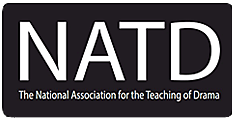BLM: Not A Time For Hesitation
NATD is founded on a commitment to developing a child-centred, humanising curriculum, with an internationalist perspective. We frame our endeavours with the question ‘what does the teacher need to do so that the child can be at home in the world?’
The brutal death of George Floyd at the hands of a police officer in America, the impact of Covid 19, and the mismanagement of national exam results in England have all reminded us of the systemic racism at work here.
We stand in solidarity with black teachers and education workers and black communities. We renew our commitment to developing a Living Curriculum that is needed now more than ever; an education that meets the needs of our young people. All aspects of the curriculum must reflect the real life concerns and experiences of the young people in schools. The senior leadership teams of schools, exam boards and classroom teachers must seek out and include curriculum materials that reveal, engage with and
address issues of equality and diversity from a content and pedagogical perspective.[1]
This should encompass the whole range of curriculum subjects. In Drama, for example, this could mean reaching out to contemporary black playwrights, demanding that theatres stage plays by black playwrights, mining the wealth of black fiction and art that exists, lobbying exam boards and seeking out stimuli that reflects that
within an ever-changing multi-diverse society, conventions of Britishness will always require reconceptualising to incorporate all of our histories and stories[2]
This also implies an underpinning stance, modelled by the teacher that embraces and acknowledges equality of access and visible respect in the daily activity of the classroom. It implies that teachers seek out, as an example, information about the past exam performances and expectations of black students and consciously create lessons that address this. It implies that each teacher should create their own classroom equal opportunities policy.
The underrepresentation of BAME people in teaching and education must be addressed by the government and lobbied for by the shadow government. Head teachers and universities must take a proactive stance in enrolling BAME student teachers onto teacher education courses, which nurture the teachers of tomorrow.
And at the same time we need to be aware that racial injustice does not end with these actions. We need to keep ourselves informed of continuing injustice and systemic inequality and racism, of, for example, modern day slavery, of harassment of black people by the police, and of the damage done to the inner lives of black youth.
As teachers it is our responsibility to make the classroom a place of safety and respect for all. A place where difficult truths can be told and analysed within the protective fiction that is our touchstone. We are skilled and practised in developing empathy, both in the unfolding of compelling stories and as we structure the development of the students’ imagination to form inquiry and understanding of others in the acknowledgement of our common humanity. We need to be confident and diligent in the daily teaching of empathy so each young person is enabled to feel at home in the world. As Gina Miller says
It’s a lack of empathy for other people or other countries that makes warfare and conflict possible. It’s a lack of empathy towards other ethnic groups, social classes….which makes oppression and inequality possible.[3]
